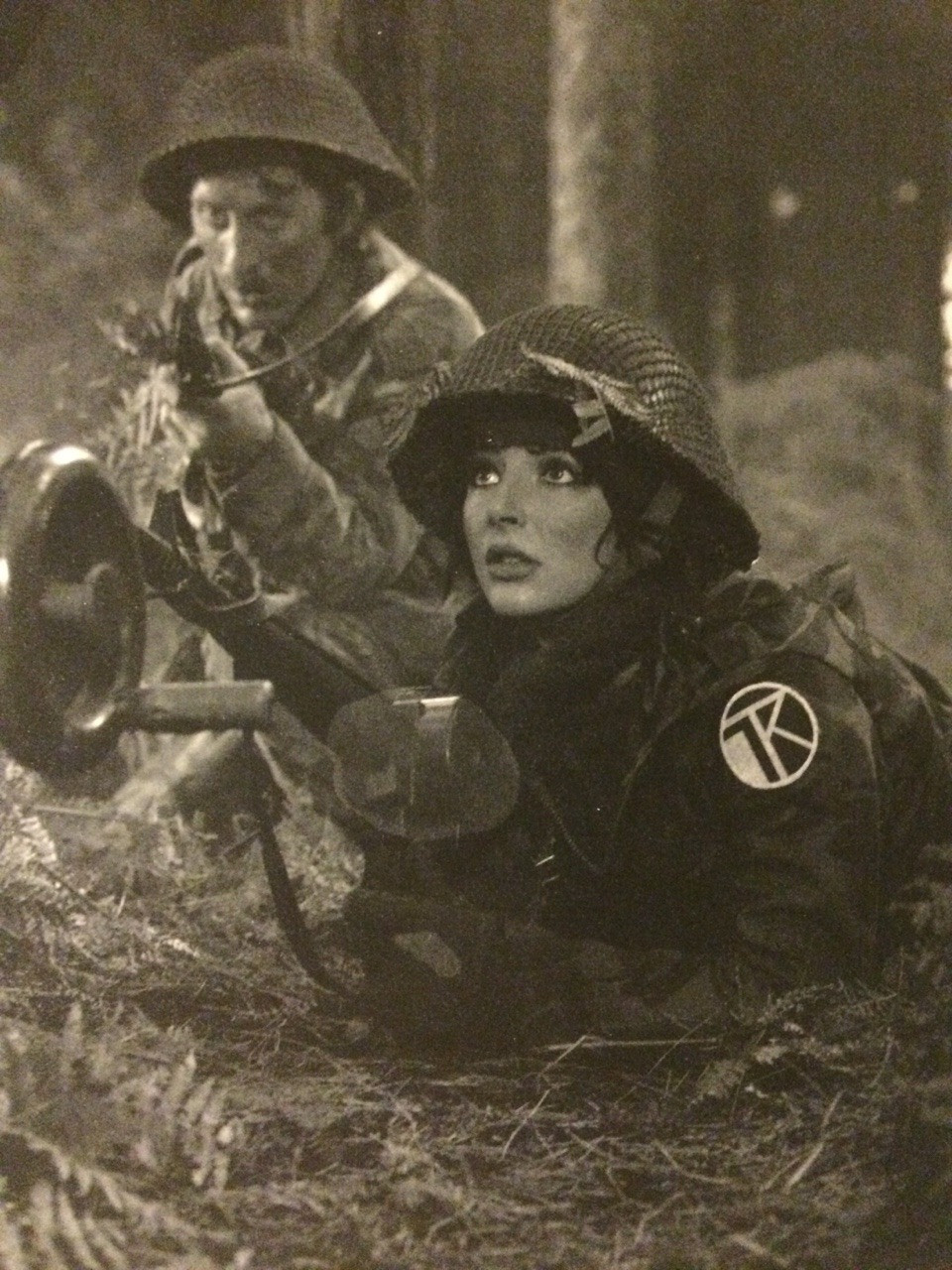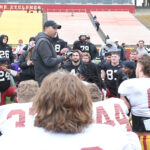Kate Bush’s “Army Dreamers,” from her 1980 album Never for Ever, is a poignant exploration of grief and loss, wrapped in the guise of a seemingly simple folk song. The lyric “Four Men In Uniform To Carry Home my little soldier” encapsulates the heart-wrenching reality of war’s impact on families, painting a vivid picture of uniformed figures bearing the ultimate symbol of loss. This track delves into the personal tragedy behind military sacrifice, a theme deeply resonant even today.
 Kate Bush Army Dreamers music video still
Kate Bush Army Dreamers music video still
“Army Dreamers” stands out as a starkly beautiful piece, a departure into traditional British folk music for Bush. While she had previously touched upon folk elements in her work, this song is a full immersion into the genre. The lyrics tell the story of a bereaved mother, her sorrow palpable in every hushed word. The line, “four men in uniform to carry home my little soldier,” is not just a lyric; it’s a powerful image, evoking the somber formality of military funerals and the devastating finality of death in service. The use of “four men in uniform” immediately brings to mind the visual of a military honor guard, a stark representation of loss delivered to the doorstep of a grieving family.
Musically, the song reinforces this sense of mournful solemnity. Bush’s vocal delivery is whisper-like, almost a lament, imbued with a subtle Irish accent that adds to the folk ballad feel. The rhythmic “ck-ck” sound, created by sampling gun loading noises through a Fairlight CMI, provides an unsettling percussive element. This sound, juxtaposed with the gentle mandolin played by Paddy Bush in 3/4 time, creates a dirge-like atmosphere. The bodhrán, played by Stuart Elliott, further grounds the song in Irish folk tradition, enriching its acoustic texture and adding to its melancholic tone. These instrumental choices highlight the song’s roots in folk music while subtly underscoring the military theme, even before the listener explicitly focuses on the “four men in uniform” imagery.
The phrase “four men in uniform to carry home” is not just about the physical act of bringing a body home; it’s laden with symbolism. Uniforms represent service, duty, and sacrifice. In this context, the four men in uniform are not just soldiers; they are messengers of grief, embodiments of the military institution that has taken away a son. The uniformity itself emphasizes the impersonal nature of war, contrasting with the deeply personal loss experienced by the mother. The image is stark and formal, highlighting the cold, official process that follows a soldier’s death, brought into sharp relief against the raw, personal grief of the mother.
Bush’s exploration of class and societal expectations also subtly weaves into the narrative. The lyrics hint at lost potential and limited opportunities for the young soldier – “he should have been a rock star / but he never had the money for a guitar,” “he should have been a politician / but he never had a proper education.” These lines paint a picture of a working-class background, where military service might be seen as one of the few available paths. In this light, the “four men in uniform” become not just bearers of grief, but also symbols of a system that channels young lives, particularly those from disadvantaged backgrounds, into military service, sometimes with tragic consequences.
While Bush often avoids overt political statements, “Army Dreamers” carries a quiet anti-war sentiment. The focus is not on the glory of battle but on the devastating aftermath, the “waste of army dreamers.” The mother’s grief is central, and the song emphasizes the personal cost of conflict. The line about military honors – “Give the kid the pick of pips / and give him all your stripes and ribbons / now he’s sitting in his hole / he might as well have buttons and bows” – expresses a poignant cynicism towards military accolades, suggesting their emptiness in the face of death. The “four men in uniform” imagery contrasts sharply with this cynicism, representing the official honors that are bestowed, yet ultimately failing to compensate for the profound personal loss.
The music video for “Army Dreamers” further enhances the song’s themes of loss and grief. Bush, dressed as a soldier in camouflage, is surrounded by other uniformed figures. In a particularly striking moment, she turns to a tree and envisions her lost son, only for him to vanish as she reaches out to embrace him. This fleeting apparition encapsulates the haunting nature of grief, the way memories and visions of the departed can appear and disappear, leaving a lingering ache. The uniforms in the video reinforce the military context, while the ephemeral image of the son underscores the pain of absence. The “four men in uniform” are implied, their presence felt in the overall military setting of the video, even if not explicitly shown carrying a coffin.
“Army Dreamers” is a powerful and moving song that uses the image of “four men in uniform to carry home” as a focal point to explore the profound grief associated with military loss. It’s a song that lingers, prompting reflection on the human cost of conflict and the enduring pain experienced by those left behind. Through its folk ballad structure, poignant lyrics, and evocative imagery, “Army Dreamers” remains a timeless commentary on war and its impact on families, a message still relevant and resonant in contemporary times. The somber picture of “four men in uniform” continues to serve as a stark reminder of the sacrifices made and the grief endured in the wake of military service.

